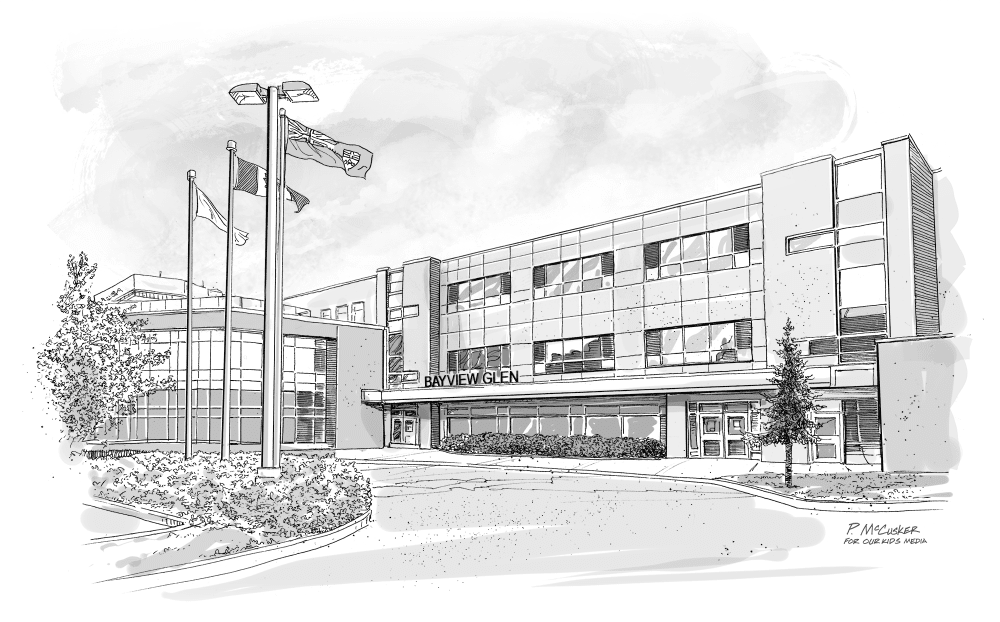

The regions Bayview Glen offers busing from are:
Additional notes: Routes depend on demand.
How we see Bayview Glen
Compare with:
How Bayview Glen sees itself
"Bayview Glen is an academically invigorating, co-education independent school for students from age 2 to Grade 12. Situated on two closely connected campuses in North York, our vibrantly diverse community is inspired by expert teachers and fuelled by a forward thinking curriculum. Bayview Glen welcomes all students into a nurturing community that allows inquisitive minds to flourish. Our broad offering of curricular and co-curricular activities ranges from Drama to Design Thinking, Robotics to Round Square, Music to Model United Nations, Athletics to Advanced Placement. We value collaboration, problem solving and academic risk-taking to foster the entrepreneurial mindset and respect for diverse viewpoints that are essential for success in the 21st century. Bayview Glen students graduate as compassionate cosmopolitans, fully prepared for top ranked universities at home and abroad. Equally important, they step forth with the skills and attitudes needed to embrace and influence a world of accelerating change."
"Our close-knit and vibrantly diverse community, inspired by expert teachers and fuelled by a forward-looking curriculum, shapes independent thinkers and energetic citizens. We are members of Round Square, an international association for compassionate leaders, Advanced Placement and the Youth and Philanthropy Initiative for empowering social change."
"Families choose Bayview Glen for our balanced academic programme, which has a strong music and arts programme, languages, physical education, Outdoor Adventure, Duke of Edinburgh Programme. Our co-curricular activities include an art festival, drama productions, choirs, bands, and extensive team sports. Students can also join clubs and activities including DECA and Robotics."
"We are proud to highlight our educational continuum from Preschool (age 2) through Grade 12 which fosters values, abilities and friendships to last a lifetime. This philosophy embraces the real world beyond our walls in that we are co-educational, multicultural and multi-denominational; and it focusses on the whole child, nurturing each child’s full potential and confidence to succeed. Our families come together to support our school in building a strong and nurturing community for all."
"Founded in 1962 by Lois Doreen Hopkins, Bayview Glen began originally as a nursery school and day camp. Beginning with the mission of creating “a nurturing environment in which each and every child is precious”, our teachers are accessible and committed to providing excellence in teaching and learning demands of all students and families. Our goal continues to be to nurture relationships, craft the experiences, and provide the supports that empower our students."
Bayview Glen operates summer camps and programs. Click here to learn about Bayview Glen Camp .


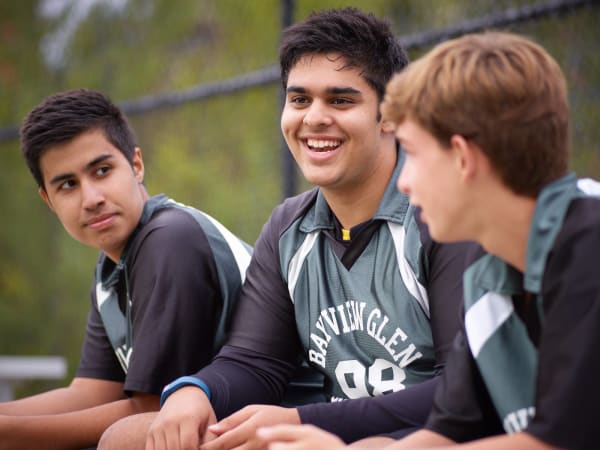
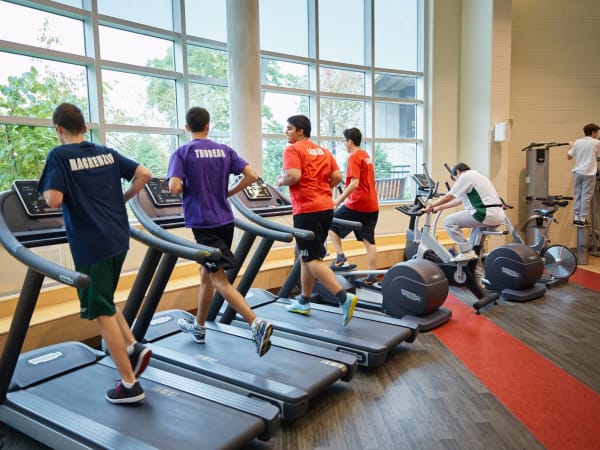


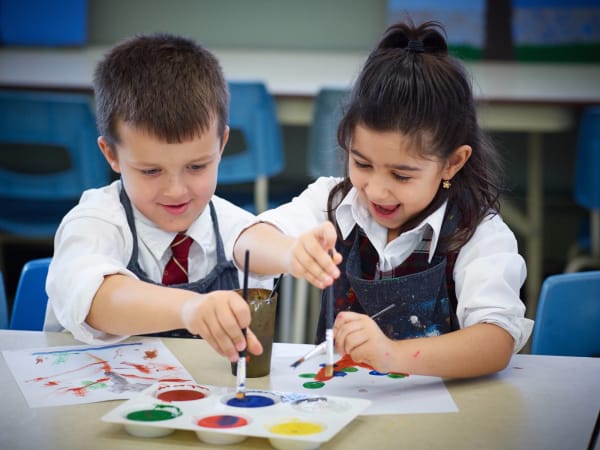

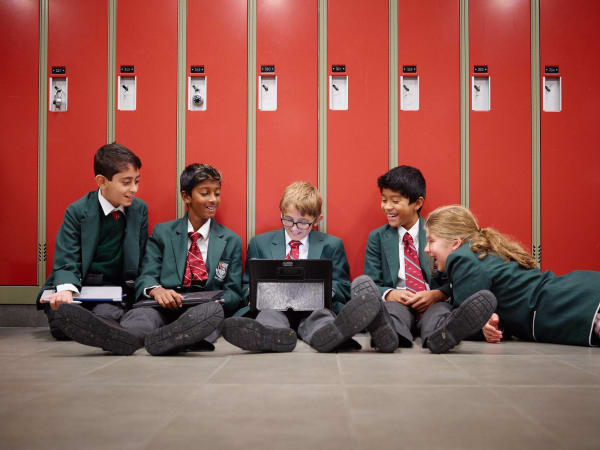
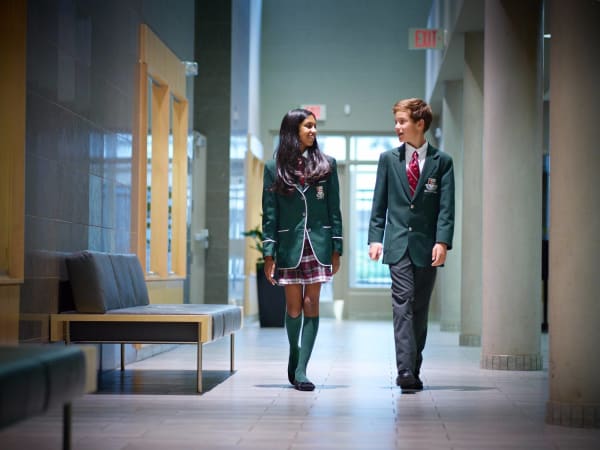



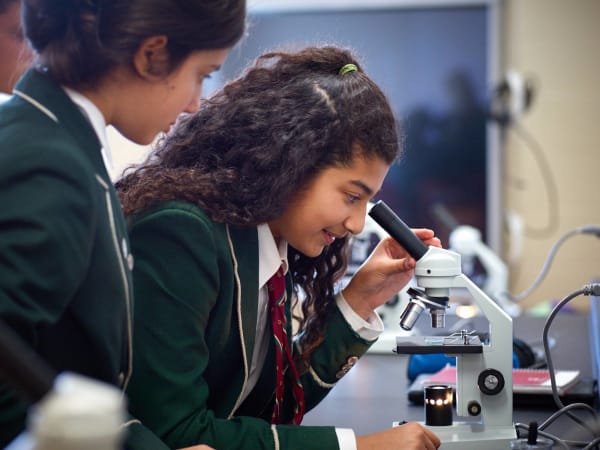
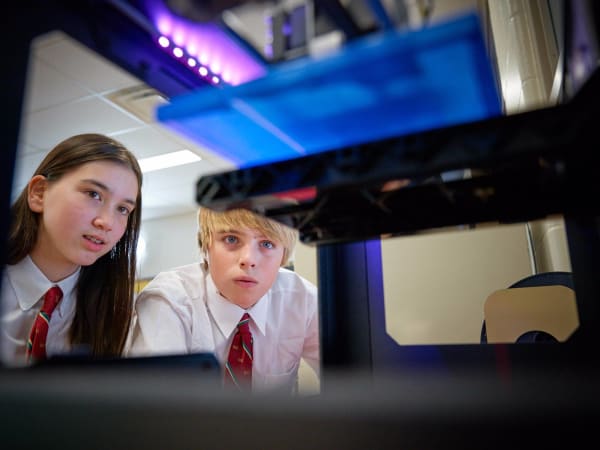



Top-down influence on the school’s direction and tone
James Lee, Head of School
As a dedicated community of learners and leaders, Bayview Glen is a world class, co-educational institution that provides a wealth of opportunities for aspiring young minds to explore, experience and discover their passions through a rigorous, academic and supportive learning environment guided by our talented faculty and staff. Our mission is Whole Child: Whole Life: Whole World.
As a vibrant school community, it is paramount at its core that each individual feels welcomed, understood and valued. Our teachers place a high priority on engagement, mentorship and character development through our core values of Respect, Responsibility, Compassion, Integrity, Equity and Balance. The fundamental building block of feeling a sense of belonging allows for greater opportunities and pathways for students to learn, explore, discover and experience the enrichment through our academic and extensive co-curricular programmes.
In today’s world and tomorrow’s pathway for students, one of the important goals of educational institutions is to teach our generation, not only to strive to be the best of who they are and get to a good place, but do it in a good way, with purpose and passion.
I invite you to contact our Admissions Department and visit our campus to experience firsthand our unique place of learning where students are provided a wealth of opportunities to discover their passions and purpose.
Most big schools provide your extroverted child with plenty of social opportunities and the ability to interact with different peer groups with a wide range of personalities, interests, values, etc. A larger student population and more extracurriculars—including activities like team sports, arts programs, and debate—will give them a broader scope of opportunities to participate in events that scratch their interpersonal itch. “This may also give them the opportunity to hone certain skills,” say Ann and Karen Wolff of Wolff Educational Services. “For instance, they might run for student council to develop leadership and public speaking skills and learn to be a voice for other students.”
Through extensive group work, projects, and activities, Reggio Emilia schools provide the kind of social and collaborative learning environment many extroverts crave. Since it’s believed children learn well through social interaction, they’re given plenty of time to interact, listen to each other, ask and answer questions, and work on their communication skills. This can nurture their curiosity and imagination, improve their social skills, and enable them to form close and fulfilling friendships. While most Reggio Emilia schools also give kids quite a bit of unstructured social time, make sure you ask about this.
Make sure any prospective school, no matter what size, provides the right social environment to help your child feel at home, make friends, and develop confidence. This is especially important at big schools, which are sometimes more socially overwhelming and challenging for an introvert to find their bearings in. Of course, “Because larger schools usually have a more diverse student population, introverted kids are more likely to find a small group of people like them, a peer group they can relate to and find acceptance from,” says Dona Matthews, Toronto-based education consultant and co-author (with Joanne Foster) of Beyond Intelligence.
Bigger schools often have a broader scope of extracurricular activities, which is another way to help your child meet the right group of friends. “This may also give them the opportunity to develop certain skills,” say Ann and Karen Wolff of Wolff Educational Services. “For instance, they might run for student council to develop leadership and public speaking skills and learn to be a voice for other students. Remember, though, each child is different—so what works for one may not work for another.”
In Reggio Emilia schools, teachers consider each child’s relationship to one another and aim to promote positive connections between them, a blessing for introverted kids (as it is for extroverted kids). The warm, community feel of the Reggio classroom—which is set up to promote lots of interaction—can enable your child to feel at home, connect with classmates, and overcome their shyness. Given the social and dynamic environment of the Reggio classroom, make sure your child will get enough time on their own, in and out of class, to replenish their energy and psychological resources.
THE OUR KIDS REPORT: Bayview Glen
Next steps to continue your research:
Continue researching Bayview Glen with OurKids.net, or visit school website.
